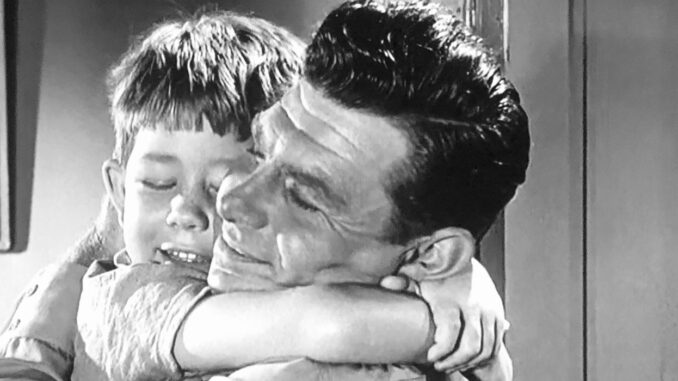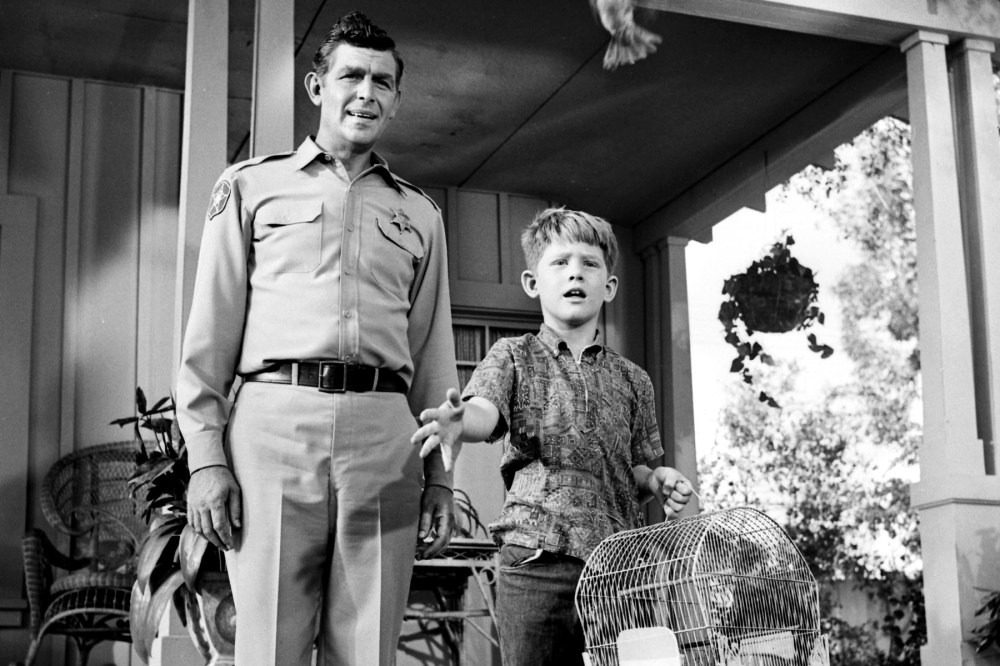
Introduction: Why ‘Opie the Birdman’ Still Hits So Hard
If you’ve ever teared up watching a classic TV moment, chances are “Opie the Birdman” from The Andy Griffith Show made your eyes misty. It’s not just any episode—it’s the episode. The one where little Opie accidentally kills a bird and then takes on the responsibility of raising its baby chicks. But what makes it so emotionally charged?
Ron Howard, who played Opie, recently shared how his own father, actor Rance Howard, played a powerful role in preparing him for that unforgettable performance. Let’s dive into how a behind-the-scenes moment between father and son became part of TV history.
The Legacy of ‘The Andy Griffith Show’
Why It Still Resonates Today
Over six decades later, The Andy Griffith Show remains one of the most beloved American sitcoms. Why? Because it wasn’t just about laughs—it was about life. Episodes tackled moral lessons, emotional growth, and the beauty of simplicity.
The Power of Family and Values
The show emphasized kindness, community, and parenting. And no episode portrayed this better than “Opie the Birdman.” It’s not just about a boy and a bird. It’s about guilt, growth, and redemption—all told with quiet grace.
Setting the Scene: What Happens in ‘Opie the Birdman’?
A Quick Recap
In the episode, Opie Taylor uses a slingshot and unintentionally kills a mother bird. What follows is a heartfelt journey where he takes responsibility and raises the orphaned baby birds. It’s pure emotional storytelling, and it’s often cited as one of the greatest episodes in television history.
The Episode’s Emotional Arc
This wasn’t just about acting cute. Opie had to cry, grieve, and show real change—and Ron Howard had to deliver a performance that viewers still talk about today. And that’s where his dad stepped in.
Ron Howard: A Young Star with a Big Task
Child Stars Weren’t Given Much Direction
Back in the 1960s, child actors were often left to figure things out themselves. Directors rarely coddled them or guided them through tough scenes. Ron Howard was only 8 years old when he had to perform in one of the show’s most emotional episodes.
The Emotional Weight of the Role
Imagine being a kid and having to channel deep emotions on cue. That’s tough, even for seasoned adults. For “Opie the Birdman,” Ron had to show remorse, sorrow, and compassion—all in a single episode.

Enter Rance Howard: A Father’s Quiet Guidance
How Ron’s Dad Helped Prepare Him
Ron Howard credits his father, Rance, with helping him understand the emotional gravity of the scene. Rance didn’t just say, “Cry here.” He helped Ron feel the scene. He broke down the script and gently walked his son through what the character was experiencing.
Empathy, Not Acting Tricks
Instead of teaching him acting tricks, Rance helped Ron access empathy. They talked about how he’d feel if he hurt something he cared about. That approach helped Ron connect emotionally to the character—and it showed on screen.
Lessons in Emotional Intelligence
Understanding Feelings at a Young Age
This kind of coaching went beyond acting. It helped Ron Howard develop emotional intelligence early in life. Learning to feel deeply and express that on camera was a skill that carried into his adult acting and directing career.
Authenticity Over Performance
That’s why Opie’s tears feel real—because they were. They weren’t manufactured for the camera. Thanks to his dad, Ron understood the why behind those emotions.
Andy Griffith’s Role in the Scene
A Gentle Guide Off-Camera Too
Andy Griffith wasn’t just Andy Taylor on screen—he was a mentor to Ron Howard in real life. He encouraged Ron and treated him with respect, not like just another kid actor. That trust made it easier for Ron to be vulnerable in emotional scenes.
A Masterclass in Understated Acting
Andy’s reaction to Opie’s confession is subtle and compassionate. That delicate interplay between the two characters is what gives the scene its timeless emotional impact.
Behind the Camera: Crafting the Episode
Why This Script Was Special
Writers Bill Idelson and Sam Bobrick created an emotional gem. The script focused less on moral preaching and more on emotional growth, which made it more effective.
Director Bob Sweeney’s Light Touch
Director Bob Sweeney knew when to hold back and let the actors do their thing. There’s no dramatic music, no over-the-top camera angles—just honest storytelling.
The Impact of the Episode on Viewers
Why Viewers Still Talk About It
This episode hits a universal nerve—regret, responsibility, and making things right. Viewers, both kids and adults, saw a bit of themselves in Opie’s journey.
A Blueprint for Emotional TV
“Opie the Birdman” became a template for how TV could handle tough emotional subjects in a family-friendly way. It’s taught in film schools and studied for its quiet brilliance.
Ron Howard’s Reflection Years Later
A Director’s Perspective
Now a celebrated director, Ron often looks back on that episode as one of the most formative moments of his career. He’s said it taught him the power of subtlety and the strength of vulnerability.
The Importance of Parental Support
Ron has repeatedly credited his parents, especially his dad, for making sure his acting journey was healthy and grounded.
How ‘Opie the Birdman’ Changed TV
From Comedy to Drama Seamlessly
It proved sitcoms didn’t have to stick to just laughs. The Andy Griffith Show showed that even comedy can have depth and heart.
Inspiring Future Creators
Many modern creators, from Ron himself to filmmakers like Judd Apatow, cite The Andy Griffith Show as a key influence in blending comedy with sincerity.
What Parents Can Learn from Rance Howard
Modeling Emotional Support
Rance Howard wasn’t just a stage parent—he was a guide. Today’s parents can take a page from his book: teach kids to process, not suppress, emotion.
Using Real-Life Scenarios for Teaching Moments
He helped Ron understand a fictional moment by relating it to a real-world feeling. That’s smart parenting—and it stuck.
Why the Episode Still Matters in 2025
Timeless Themes of Responsibility
Even in an era of streaming and short attention spans, “Opie the Birdman” resonates because the themes are universal. Who hasn’t made a mistake they wish they could undo?
Emotional Honesty Is Rare—and Valuable
This episode reminds us that it’s okay to feel, to hurt, and to make things right. That’s a message we can all use a little more of today.
Conclusion: A Bird, a Boy, and a Lesson That Soared
So, the next time you watch “Opie the Birdman,” remember: that wasn’t just acting. That was a moment of genuine connection—between a father and son, a boy and his conscience, and a show and its audience. Ron Howard’s dad didn’t just teach him to act—he taught him to understand. And that made all the difference.
FAQs
1. What is the plot of “Opie the Birdman” on The Andy Griffith Show?
It centers on Opie accidentally killing a bird and then raising its orphaned chicks, learning deep emotional lessons about responsibility and compassion.
2. How did Ron Howard prepare for the emotional scenes in the episode?
His father, Rance Howard, helped him understand the emotional context and guided him through the feelings rather than just teaching acting techniques.
3. Why is “Opie the Birdman” considered one of the best episodes?
Because it delivers a heartfelt lesson through sincere performances, simple storytelling, and powerful emotional resonance without being preachy.
4. What was Andy Griffith’s role in helping Ron during the show?
Andy acted as a mentor both on and off the screen, treating Ron with respect and helping create a nurturing environment for young actors.
5. How did this episode influence Ron Howard’s future career?
It helped him appreciate the power of authentic emotion in storytelling—a lesson that shaped his directing style in films like A Beautiful Mind and Apollo 13.